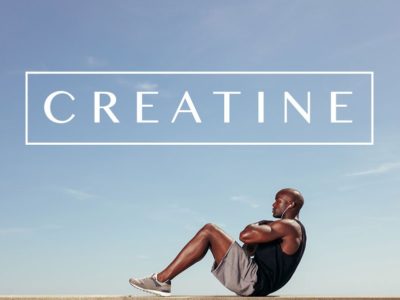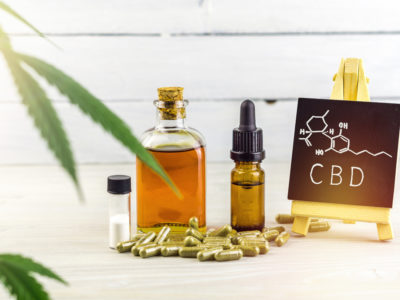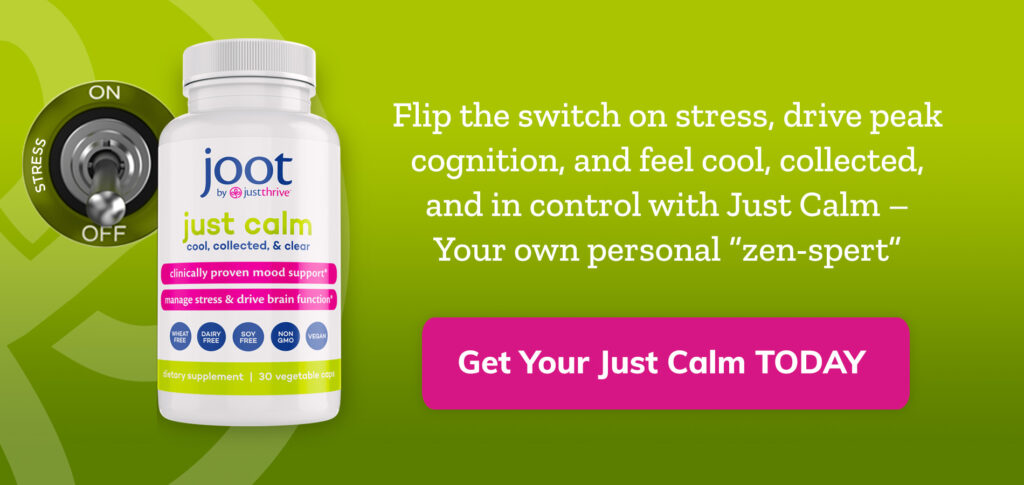Table of Contents[Hide][Show]
Have you ever paused for a mid-afternoon coffee break to beat that 3 P.M. drowsiness?
Or sipped a cup of “sleepy time tea” to help you doze off?
Or taken a prescription medicine to help with ADHD?
If you answered yes, then guess what?
You’ve taken a nootropic.
But what are nootropics, exactly? And how do they work?
Let’s explore the world of these “smart drugs” and how they impact your brain.
An Overview of Nootropics
Nootropics are a variety of natural, synthetic, or hybrid (semi-synthetic) substances that can help enhance cognitive function and improve your mental skills.
In the simplest terms, nootropics help your brain function at its absolute best. For this reason, nootropics are sometimes referred to as smart drugs, cognitive enhancers, or brain supplements.
Generally speaking, nootropics won’t have a “one-and-done” effect. You’ll have to take them regularly before you start seeing the results you seek.
Some nootropics require a prescription, such as medication for ADHD. Others, such as the afternoon coffee we mentioned, are used quite commonly.
But in all cases, your result will be the same: improved cognitive ability.
And that sounds great, but what about the other side effects? Can nootropics have a negative impact? Let’s explore this question and much more below.
Are Nootropics Safe?
Your brain is one of your most important organs. And safety is, quite rightly, one of the biggest concerns with anything that affects brain function.
The good news is that when used correctly, and, in some cases, under medical supervision, nootropics are generally safe.
Prescription nootropics can have amazingly positive benefits when used for the right reasons and in the right amount.
For example, there are medications that can help slow down or even reverse some of the effects of Alzheimer’s disease. These nootropics can help with memory loss and greatly improve both the mental wellness as well as the quality of life for Alzheimer’s patients.
But problems occur when a person abuses nootropics, either by taking a higher dosage than recommended, taking them for the wrong reason, or by taking a medication prescribed for someone else.
For example, stimulants are a commonly prescribed nootropic for people diagnosed with Attention Deficit Hyperactivity Disorder (ADHD). They can help patients feel more calm, alert, and focused, making their disorder more manageable.
Unfortunately, some students abuse stimulants either by taking too many at once or by taking someone else’s prescription. They claim it helps them focus on their studies and perform better on tests. But by using it incorrectly, they’re also opening themselves up to a number of side effects, including hypertension, digestive issues, and mood swings.
Even natural nootropics can be unsafe. The same coffee that gets you going in the morning can give you insomnia, dizziness, and headaches if you start reaching for cup after cup.
Related
12 Caffeine Alternatives for a Natural Energy Boost
Increase your energy levels throughout the day with these caffeine alternatives. As an added bonus to drinking less caffeine, these substitutes have plenty of added health benefits that might make you think twice next time you reach for another cup of Joe!
However, it’s important to note that in both of these examples (stimulants and caffeine), the problems stem from overuse or improper usage.
As long as you’re using nootropics in the right amount and for the reason they were intended, they are generally considered safe.
The Benefits of Nootropics
Knowing that they’re safe, you may be considering trying nootropics for yourself.
Here are some of the ways in which you may see a positive impact from nootropics.
Greater Concentration and Focus
By now, almost everyone knows someone with ADHD. If you’ve been diagnosed with it, you understand how difficult it can be to focus on school or work.
There are prescription-only stimulants that are designed to help you avoid the wandering thoughts associated with ADHD and concentrate more fully on the task at hand.
Improved Memory
Feeling forgetful? You’re not alone.
As the American population ages, memory loss has become a real issue for many people. This is especially true if you have been diagnosed with Alzheimer’s disease or dementia.
There are several nootropics that can help improve your memory and recall skills. Many of these are available by prescription only.
Related
12 Herbs For Memory and Concentration
If you have brain fog, trouble concentrating, or just want to improve your cognitive function, this article reviews twelve of the best herbs for memory that can help.
Heightened Creativity
Ready to unleash your imagination?
Nootropics such as L-theanine can increase the alpha wave activity in your brain, which is associated with greater creativity.
Calmer Mood
Your brain also controls your mood and helps you manage your stress.
The right nootropic can balance your levels of cortisol, the stress hormone, making it easier for you to remain calm throughout the day.
We love Just Calm for mood and stress support. This supplement from Just Thrive also promotes theta wave activity, which can improve your concentration and focus.
Most Common Nootropics and Their Uses
Your brain is unique, so your response to nootropics will also be unique. What works for you might not work for someone else.
But there are some promising nootropics that seem to have similar effects on a greater number of users. They might work well for you, too.
Here are some of the best nootropics for boosting your brain power.
Caffeine
Caffeine is one of the most commonly consumed nootropics, usually in the form of coffee or tea. While some people drink it simply because they like the taste, it has a potent stimulant effect. It may also help boost your mental clarity.
For the most part, caffeine is safe for you to drink. However, the over-consumption of caffeine is incredibly common.
Try to avoid taking it as a pill, supplement, or in an “energy boosting” drink, all of which contain amounts well in excess of the caffeine found in coffee or tea.
L-theanine
Caffeine, as we mentioned above, is commonly used as a stimulant. Unfortunately, you can easily become overly stimulated, resulting in “caffeine jitters.”
L-theanine enhances the positive effects of caffeine while at the same time counteracting some of that jittery feeling.
You can take L-theanine as a supplement with your coffee or tea. You can also consume it more naturally by switching to green tea, which contains both caffeine and L-theanine.
CDP-choline
If you have dementia, this nootropic may be able to help you overcome memory issues.
This is one of the safer nootropics; at the moment there are no known side effects. It’s available over the counter in America, but requires a prescription in Europe.
Creatine
If you’re a part of the fitness world, you may have heard of creatine before. It’s generally used by bodybuilders or athletes who want to bulk up and build muscle mass.
However, creatine also raises your levels of ATP, which gives you more energy. It’s also been shown to improve reasoning skills and short-term memory.
Related
3 Awesome Reasons to Supplement with Creatine
Creatine can help you boost your strength training, gain muscle mass, and sharpen your mind. Learn more about how to supplement with creatine here.
Omega-3 Fatty Acids
Omega-3 fatty acids are crucial to your brain health.
They are proven to increase the blood flow to your brain, resulting in better memory, cognitive function, and learning ability. They also protect your brain from signs of aging.
Omega 3 is found naturally in fish and seafood, nuts, seeds, and some plant oils. If you don’t get enough in your diet, you can also take them as a supplement.
Tips For Taking Nootropics
If you’ve decided to take “smart drugs” to enhance your brain’s power, here are some things to keep in mind.
- Talk to your doctor before beginning nootropics. Be completely transparent about any other medications or supplements you’re currently taking. If you drink alcohol or use drugs, be sure to let your doctor know, as this can cause dangerous reactions.
- Follow all manufacturer’s instructions carefully.
- Always take nootropics in the correct dosage. Taking more won’t necessarily increase their positive effects, but it could lead to toxicity.
- Avoid “doubling up.” Don’t take multiple nootropics intended for the same purpose, which could lead to an accidental overdose.
- Whenever possible, try to find nootropics in their most natural form, such as the Omega-3s in high-quality fish versus in a supplement.
- Keep in mind that the Food and Drug Administration (FDA) doesn’t monitor many nootropics unless they’re in the form of medicine. Only purchase them from trusted, reputable brands.
- Never take nootropics from someone else’s prescription.
- If you notice any negative side effects or they aren’t working as quickly as expected, discontinue their use and talk to your physician.
- Be aware of your mental health. Nootropics can worsen some mental health conditions.
- You may be able to boost the positive results of nootropics by taking other steps to protect your cognitive skills, such as getting regular exercise, sleeping well, reducing stress, and eating healthy foods. (These wellness habits are always beneficial and a good idea regardless.)
Finally, remember that you know your body best. Monitor all effects carefully, positive or negative, and be ready to discuss them with your doctor if necessary.
Final Thoughts
Although some of the science is new, many nootropics have been used for centuries to increase mental agility.
While merely “popping a pill” won’t make you smarter, nootropics, taken properly, can make an enormously positive difference in your cognitive health and function.
Whether in a supplement, a prescription, or all-natural, nootropics can improve your memory, focus, attention, concentration, and creativity.
In fact, nootropics could very well be the key to unlocking the power of your brain and helping you function at your cognitive best.
You May Also Like…







